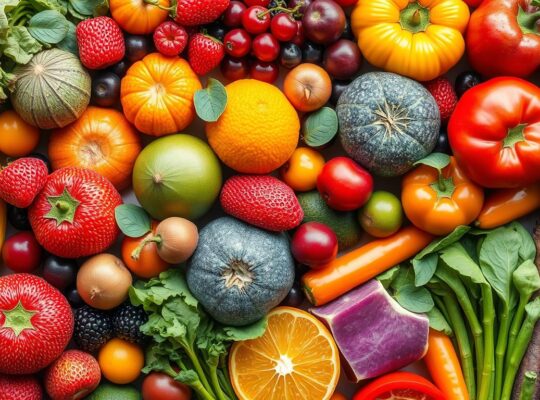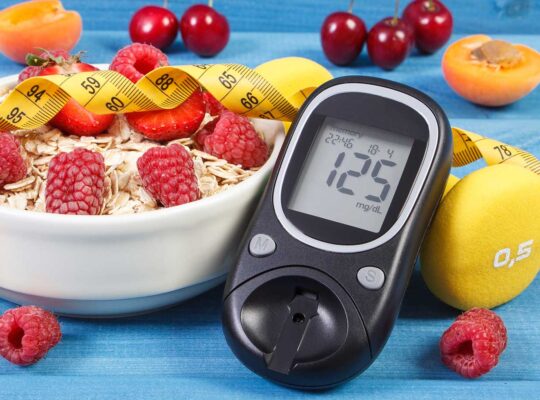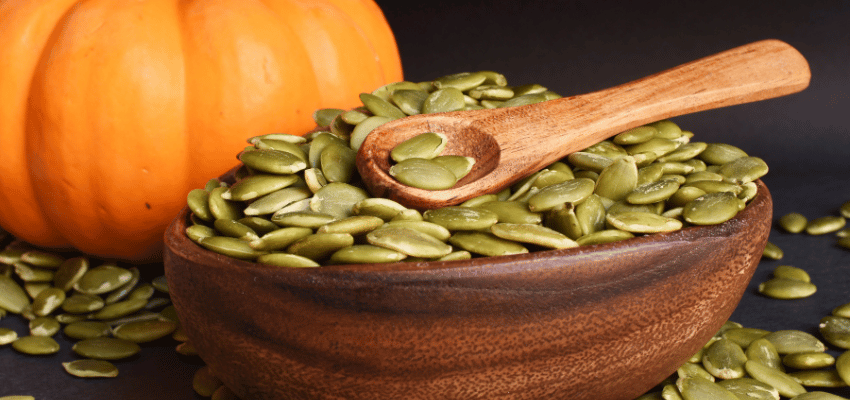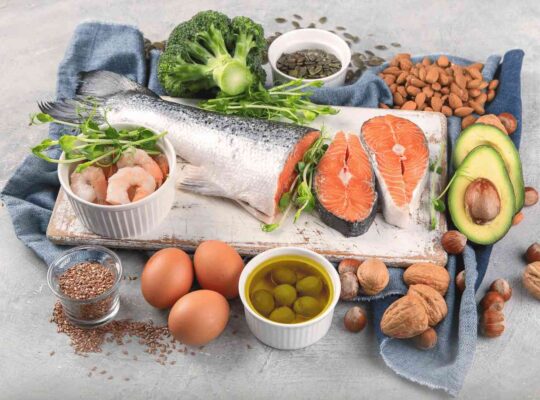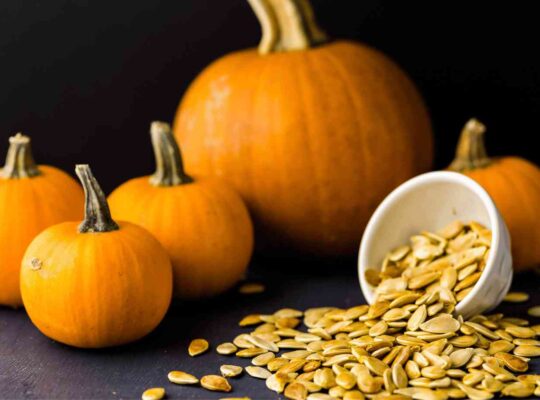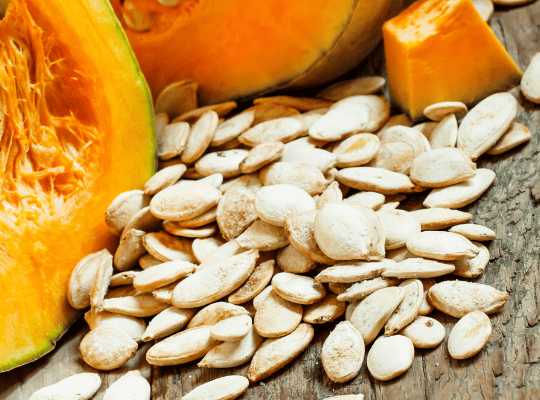Have you ever wondered how something as small as a pumpkin seed can help your body fight inflammation (swelling and pain)? Pumpkin seeds, or pepitas, are tiny but packed with nutrients. Many people don’t realize that these seeds are a great way to reduce inflammation in the body. They can help support your immune system (the system that helps your body fight off sickness) and improve your overall health. But how many pumpkin seeds should you eat each day to get these benefits without eating too much? Let’s dive in to find out the right amount, why they’re good for you, and how to enjoy them every day.
1. Nutritional Value of Pumpkin Seeds
Pumpkin seeds are nutrient-dense (full of vitamins and minerals in a small amount of food). In just 1 ounce (28 grams), which is about a small handful, pumpkin seeds provide:
- 160 calories – This gives you energy.
- 8.6 grams of protein – Protein helps build muscles.
- 14 grams of fat – Don’t worry, these are mostly healthy fats that are good for your heart.
- Magnesium (40% of your daily value) – Magnesium helps your muscles and nerves work well.
- Zinc (20% of your daily value) – Zinc boosts your immune system to help keep you from getting sick.
- Iron (14% of your daily value) – Iron is important for making healthy blood.
These nutrients work together to help reduce inflammation in the body. For example, magnesium is known to help with muscle pain and stress, while zinc supports your immune system, keeping it strong to fight off infections and lower swelling.
Pumpkin seeds are also rich in antioxidants (substances that protect your cells from damage). Antioxidants help fight off something called oxidative stress (damage caused by harmful molecules in your body), which can cause long-term inflammation.
2. Recommended Daily Intake for Anti-Inflammatory Benefits
So, how many pumpkin seeds should you eat every day? Experts recommend about 1 ounce (28-30 grams) per day. This is roughly a small handful or two tablespoons of pumpkin seeds.
Why is this the right amount? First, it gives you enough nutrients without too many calories. Eating too many pumpkin seeds could lead to too much fat and calories in your diet, which isn’t good for you in the long run. By sticking to 1 ounce per day, you can enjoy the benefits of the healthy fats, protein, and nutrients in pumpkin seeds without overdoing it.
Including this small handful of pumpkin seeds in your daily diet can help manage inflammation, support muscle health, and even improve sleep thanks to the high magnesium content.
3. Gender-Specific Nutritional Needs
While pumpkin seeds are healthy for everyone, some of their nutrients may be especially helpful for men or women in different ways.
- For men: Pumpkin seeds are high in zinc, which is important for prostate health (a part of the male reproductive system). Studies suggest that getting enough zinc can lower the risk of prostate issues, such as swelling.
- For women: Pumpkin seeds are a good source of iron, which is particularly important for women. Women need more iron than men, especially during menstruation (monthly period), to help prevent anemia (a condition where you don’t have enough healthy red blood cells). Eating pumpkin seeds can help boost iron levels and energy.
So, whether you’re a man or a woman, adding pumpkin seeds to your diet can help address these specific health concerns.
4. Incorporating Pumpkin Seeds into Your Diet
Pumpkin seeds are not only healthy but also super easy to add to your diet. Here are some simple ways you can enjoy them:
- As a snack: Eat a small handful of raw or roasted pumpkin seeds when you’re feeling hungry between meals.
- In salads: Sprinkle pumpkin seeds on top of your salad to add some crunch and nutrients.
- In smoothies: Add a tablespoon of pumpkin seeds to your smoothie for extra protein and healthy fats.
- In baking: Include pumpkin seeds in your bread, muffins, or granola bars.
- In breakfast: Stir pumpkin seeds into your oatmeal or yogurt to start your day with a nutrient boost.
The great thing about pumpkin seeds is that they’re very versatile (you can use them in many ways). Try to include them in different meals throughout the day to make sure you’re getting their full range of health benefits.
5. Potential Side Effects and Considerations
While pumpkin seeds are generally safe and healthy, there are a few things to keep in mind. First, they are high in calories and fats, so it’s important to eat them in moderation. As mentioned before, stick to about 1 ounce per day. Eating too many could lead to weight gain or eating more fat than your body needs.
Some people may also have allergies to pumpkin seeds. If you’ve never eaten them before, try a small amount at first to see how your body reacts. If you experience itching, swelling, or trouble breathing, you could be allergic and should stop eating them immediately.
Lastly, if you have digestive problems, such as irritable bowel syndrome (IBS), eating too many pumpkin seeds might cause stomach discomfort due to their high fiber content.
Nutritional Content per 1 Ounce (28g) of Pumpkin Seeds
| Nutrient | Amount per 1 oz (28g) | Benefits |
|---|---|---|
| Calories | 160 | Provides energy |
| Protein | 8.6 g | Helps build muscles |
| Fat | 14 g | Provides healthy fats for the heart |
| Omega-3 | 22 mg | Good for heart health |
| Omega-6 | 2.5 g | Supports heart health |
| Carbohydrates | 3 g | Energy source |
| Fiber | 1.7 g | Aids digestion |
| Magnesium | 40% DV | Supports muscles and nerves |
| Zinc | 20% DV | Boosts immune system |
| Iron | 14% DV | Helps make healthy blood |
Conclusion
Pumpkin seeds are a great food to add to your diet if you want to reduce inflammation and support your overall health. Eating about 1 ounce of pumpkin seeds each day provides important nutrients like magnesium, zinc, and iron, which can help fight inflammation, support muscle function, and boost your immune system.
Whether you’re snacking on them, adding them to salads, or blending them into smoothies, pumpkin seeds are an easy and tasty way to improve your health. Just remember to enjoy them in moderation to avoid eating too many calories or fats.If you have any health concerns, talk to a doctor or nutritionist to see if pumpkin seeds are right for you. Have you tried adding pumpkin seeds to your diet? Share your experiences with us!
FAQs
- How many pumpkin seeds should I eat per day?
You should eat about 1 ounce (28-30 grams) or a small handful of pumpkin seeds per day to get their anti-inflammatory benefits. - Can eating too many pumpkin seeds be harmful?
Eating too many pumpkin seeds can lead to excess calories and fat in your diet, which might cause weight gain. Stick to the recommended 1-ounce serving size. - Are pumpkin seeds good for reducing inflammation?
Yes! Pumpkin seeds contain magnesium and zinc, which are known to help reduce inflammation and support your immune system. - What are the benefits of pumpkin seeds for men and women?
For men, pumpkin seeds are good for prostate health due to their zinc content. For women, they are rich in iron, which helps prevent anemia. - Can I be allergic to pumpkin seeds?
Yes, some people may be allergic to pumpkin seeds. If you experience itching, swelling, or trouble breathing after eating them, stop and consult a doctor.



